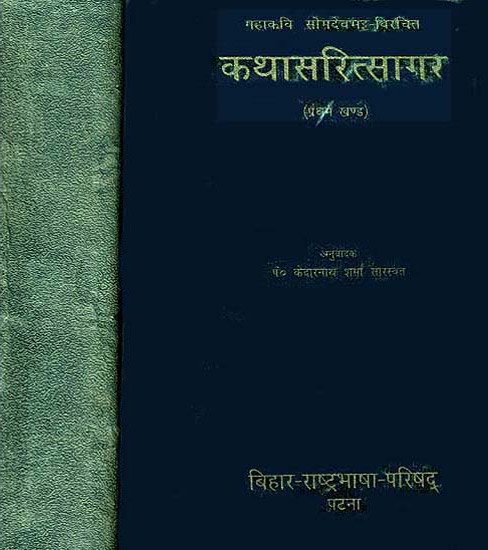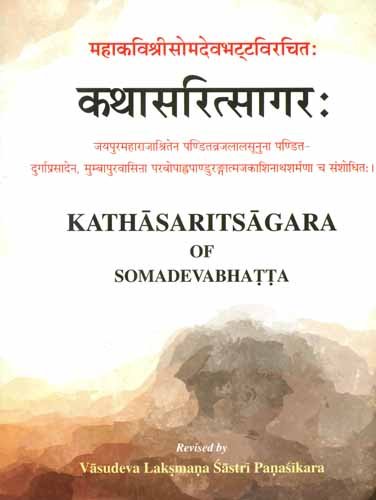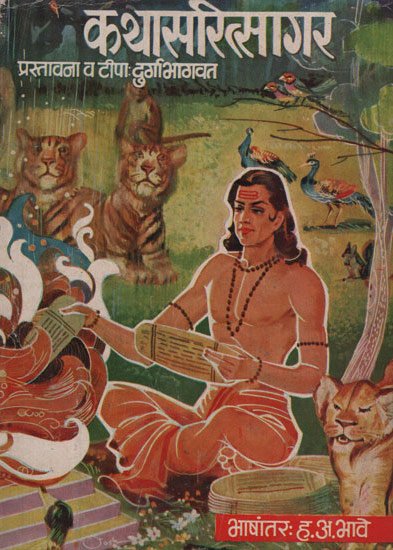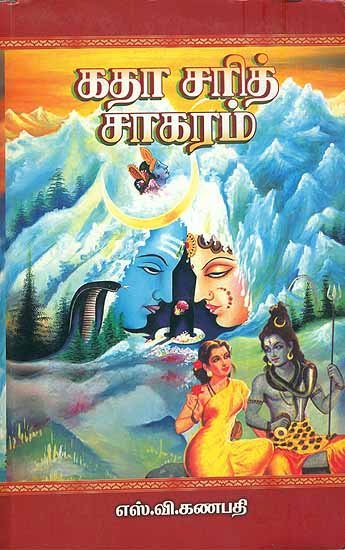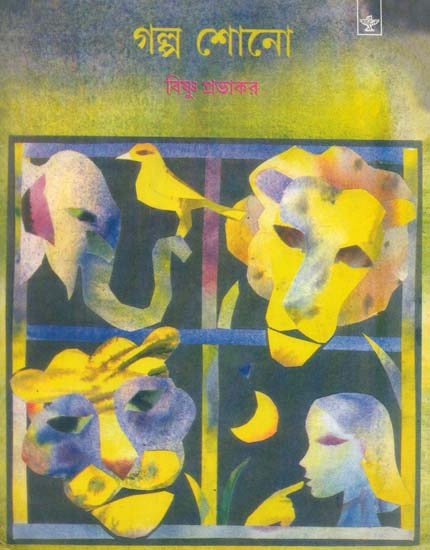Kathasaritsagara [sanskrit]
by C. H. Tawney | 2014 | 226,424 words | ISBN-13: 9789350501351
The Sanskrit edition of the Kathasaritsagara referencing the English translation and grammatical analysis. Written by Somadeva and dating from the 12th century, the Kathasaritsagara (or Katha-sarit-sagara) represents an epic legend narrating the adventures of Naravahanadatta as he strives to become the destined emperor of the Vidyadharas. Alternative titles: (Kathāsaritsāgara, कथासरित्सागर, Kathā-sarit-sāgara)
Verse 7.1.113
पिता च तं शिशुं राजा शत्रुगोत्रभयावहम् ।
दिव्यवागुपदिष्टेन नाम्ना वज्रप्रभं व्यधात् ॥ ११३ ॥
pitā ca taṃ śiśuṃ rājā śatrugotrabhayāvaham |
divyavāgupadiṣṭena nāmnā vajraprabhaṃ vyadhāt || 113 ||
The English translation of Kathasaritsagara Verse 7.1.113 is contained in the book The Ocean of Story by C.H. Tawney. This book is available online or you could buy the latest edition:
Read online Buy now! The English translation by C.H. Tawney (2014)
Glossary of Sanskrit terms
Note: This extracts Sanskrit terms and links to English definitions from the glossary, based on an experimental segmentation of verse (7.1.113). Some terms could be superfluous while some might not be mentioned. Click on the word to show English definitions.
Pitri, Shishu, Raja, Rajan, Raj, Gotra, Bhayavaha, Div, Divi, Divya, Avak, Avac, Upadishta, Namna, Naman, Vajraprabha, Vyadha,
Analysis of Sanskrit grammar
Note: this is an experimental feature and only shows the first possible analysis of the Sanskrit text (Kathasaritsagara Verse 7.1.113). If the system was successful in segmenting the sentence, you will see of which words it is made up of, generally consisting of Nouns, Pronouns, Verbs, Participles and Indeclinables. Click on the link to show all possible derivations of the word.
- Line 1: “pitā ca taṃ śiśuṃ rājā śatrugotrabhayāvaham ”
- pitā -
-
pitṛ (noun, masculine)[compound], [nominative single]
- ca -
-
ca (indeclinable conjunction)[indeclinable conjunction]ca (noun, masculine)[compound], [vocative single]ca (noun, neuter)[compound], [vocative single]
- tam -
-
ta (noun, masculine)[adverb], [accusative single]ta (noun, neuter)[adverb], [nominative single], [accusative single]tā (noun, feminine)[adverb]tan (noun, masculine)[adverb]sa (noun, masculine)[accusative single]
- śiśum -
-
śiśu (noun, masculine)[accusative single]śiśu (noun, feminine)[accusative single]
- rājā -
-
rājā (noun, feminine)[nominative single]rājan (noun, masculine)[nominative single]rāj (noun, masculine)[instrumental single]rāj (noun, neuter)[instrumental single]
- śatru -
-
śatru (noun, masculine)[compound], [adverb]
- gotra -
-
gotra (noun, masculine)[compound], [vocative single]gotra (noun, neuter)[compound], [vocative single]
- bhayāvaham -
-
bhayāvaha (noun, masculine)[adverb], [accusative single]bhayāvaha (noun, neuter)[adverb], [nominative single], [accusative single]bhayāvahā (noun, feminine)[adverb]
- Line 2: “divyavāgupadiṣṭena nāmnā vajraprabhaṃ vyadhāt ”
- divya -
-
divi (noun, masculine)[compound], [adverb], [nominative dual], [vocative dual], [accusative dual]divī (noun, feminine)[compound], [adverb], [nominative single], [vocative single]divya (noun, masculine)[compound], [vocative single]divya (noun, neuter)[compound], [vocative single]√div -> divya (absolutive)[absolutive from √div]div (noun, masculine)[locative single]
- avāg -
-
avāk (indeclinable)[indeclinable]avāc (noun, neuter)[nominative single], [vocative single]
- upadiṣṭena -
-
upadiṣṭa (noun, masculine)[instrumental single]upadiṣṭa (noun, neuter)[instrumental single]
- nāmnā -
-
nāmnā (indeclinable)[indeclinable]nāman (noun, neuter)[instrumental single]
- vajraprabham -
-
vajraprabha (noun, masculine)[adverb], [accusative single]
- vyadhāt -
-
vyadha (noun, masculine)[adverb], [ablative single]
Other editions:
Also see the following editions of the Sanskrit text or (alternative) English translations of the Kathasaritsagara Verse 7.1.113
Kathasaritsagar
by Kedarnath Sharma Saraswat (2005)
The Only Edition with the Sanskrit Text and its Hindi Translation (An Old and Rare Book) Set of 3 Vol.
Buy now!
Kathasaritsagara of Somadeva Bhatta (Sanskrit Text Only)
by Vasudeva Laksmana Sastri (2013)
Katha Sarit Sagar in Marathi
by H. A Bhave (1995)
Set of 5 Volumes; Published by Varada Books, Pune. 2256 pages (Throughout B/W Illustrations).
Buy now!
Katha Sarit Sagara (Tamil)
by S. V. Ganapati (எஸ். வி. கணபதி) (2014)
[கதா சரித் சாகரம்] Published by Alliance Publications.
Buy now!
Galpa Shono
by Abhijit Chattopadhyay (2014)
[গল্প শোনো] Galpa Shono: Bengali Translation of 'Suno Kahani From Katha Sarit Sagar'; 9788126015436; Published by Sahitya Akademi, Delhi.
Buy now!Preview of verse 7.1.113 in Bengali sript:
পিতা চ তং শিশুং রাজা শত্রুগোত্রভযাবহম্ ।
দিব্যবাগুপদিষ্টেন নাম্না বজ্রপ্রভং ব্যধাত্ ॥ ১১৩ ॥
![Kathasaritsagara [sanskrit] - book cover](/uploads/a/Katha-Sarit-Sagara.jpg)
